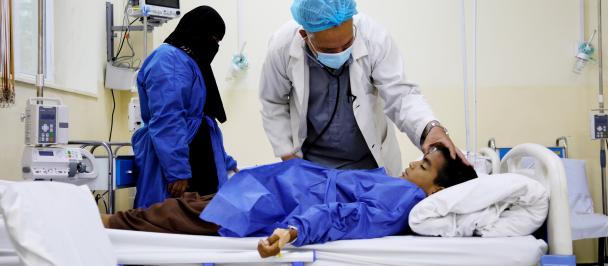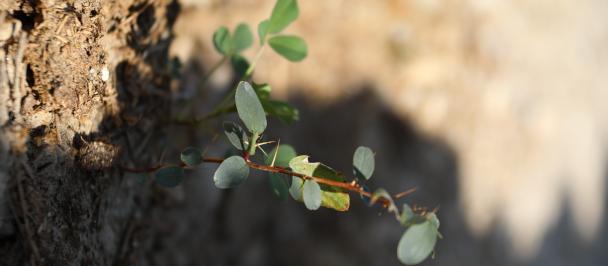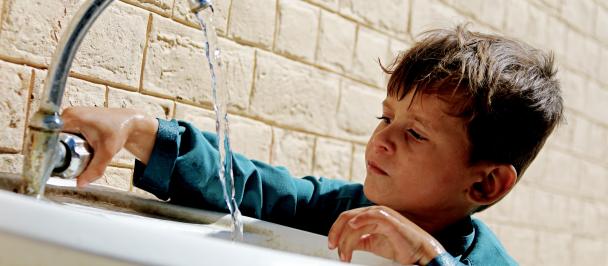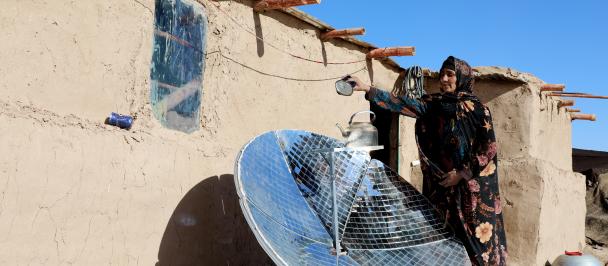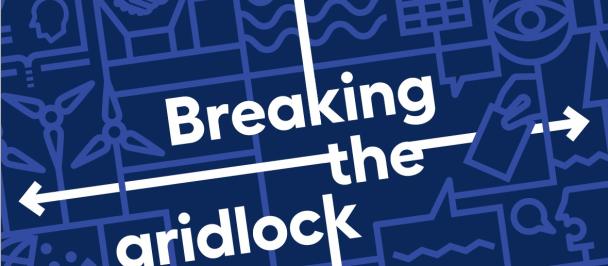A father's grief, and hope
December 10, 2023
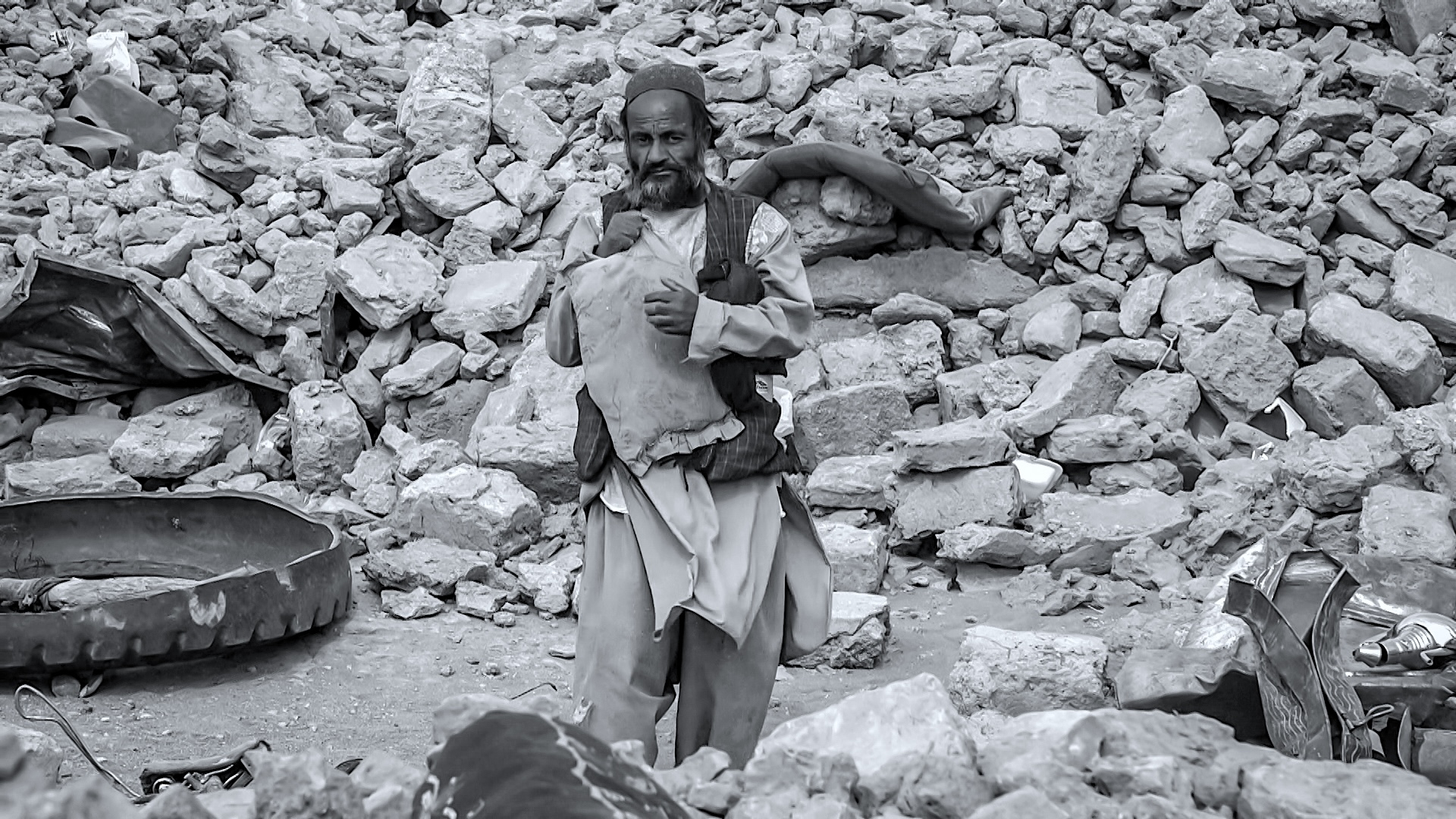
Dawood, 56, clutches his daughter's pillow, the only thing he could salvage from the rubble. His neighbors rescued him from the debris of mud and wood that buried his home, but he soon learned that his daughter did not survive the disaster.
Dawood was enjoying a peaceful morning with his family in the quiet village of Naib Rafi, Zenda Jan district in Herat province, Afghanistan. He had no idea that his life was about to change forever and that he would experience something that would echo throughout his life.
He recalls the day when the earthquake hit; bringing dust, rain, and storm that sounded like thunder. He ran out of the house, but it was too late. "We tried to run out of the house, but it collapsed behind us, trapping us under the debris," he said.
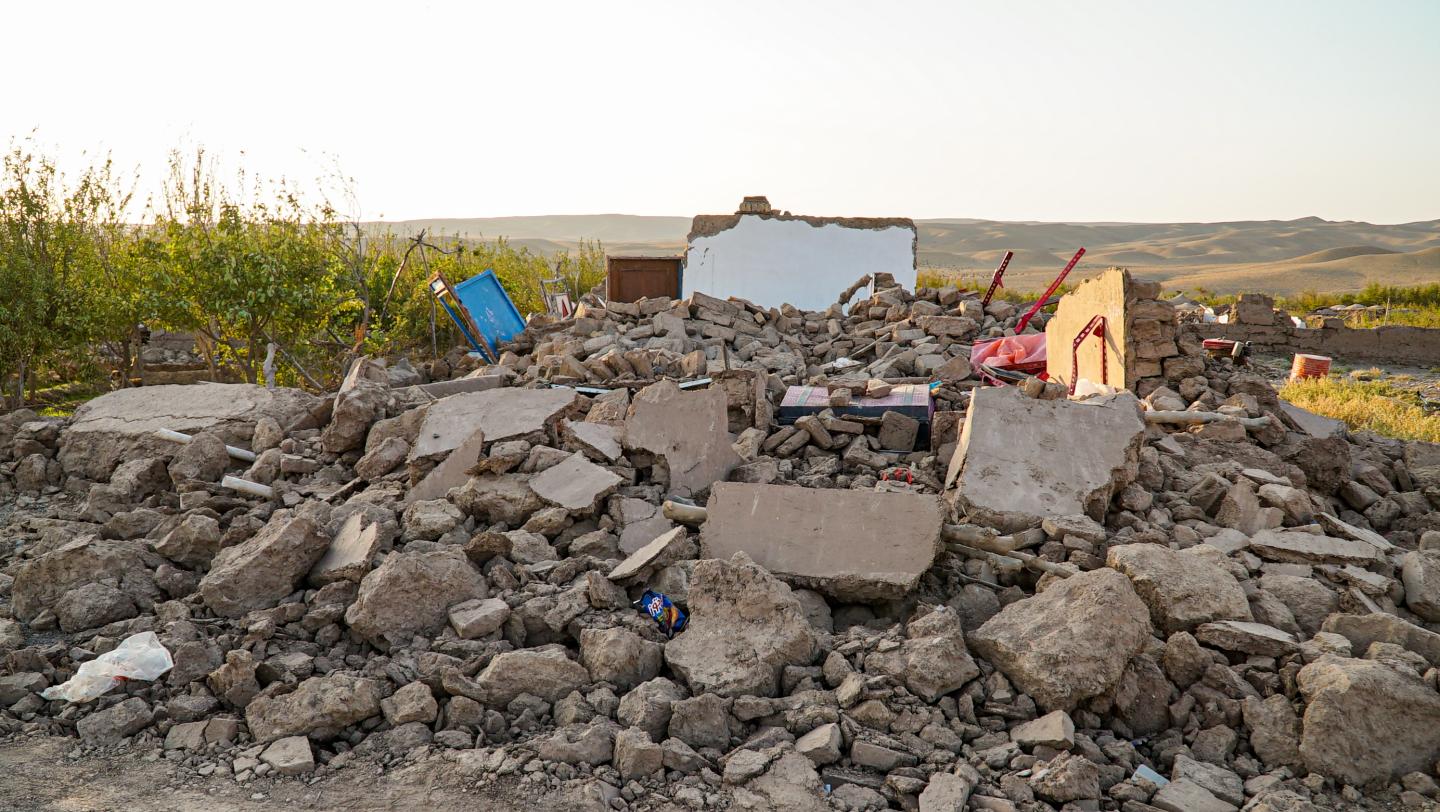
He lay there, unable to move, for hours, he could hear his three-year-old daughter crying for help, but he couldn't reach her. His shoulder was injured, and his hands were pinned down. He felt helpless and hopeless.
Dawood was finally rescued by his neighbors; they pulled out the clumps of mud and wood that buried them, but the worst was yet to come. He learned that his brother and his other daughter had already died in the earthquake.
He was taken to a tent, where he found his surviving daughter. “My daughter is in the tent now, her feet are numb, and my wife is in the hospital too.” Dawood said, "We were six in our family... one is martyred, so we are five now in total." His daughter Zahra, just three years old, and as well as his brother Karzai, 11, were among the lost.
The village is in ruins. The walls had crumbled, and the roofs had caved in. The people were in shock and despair.
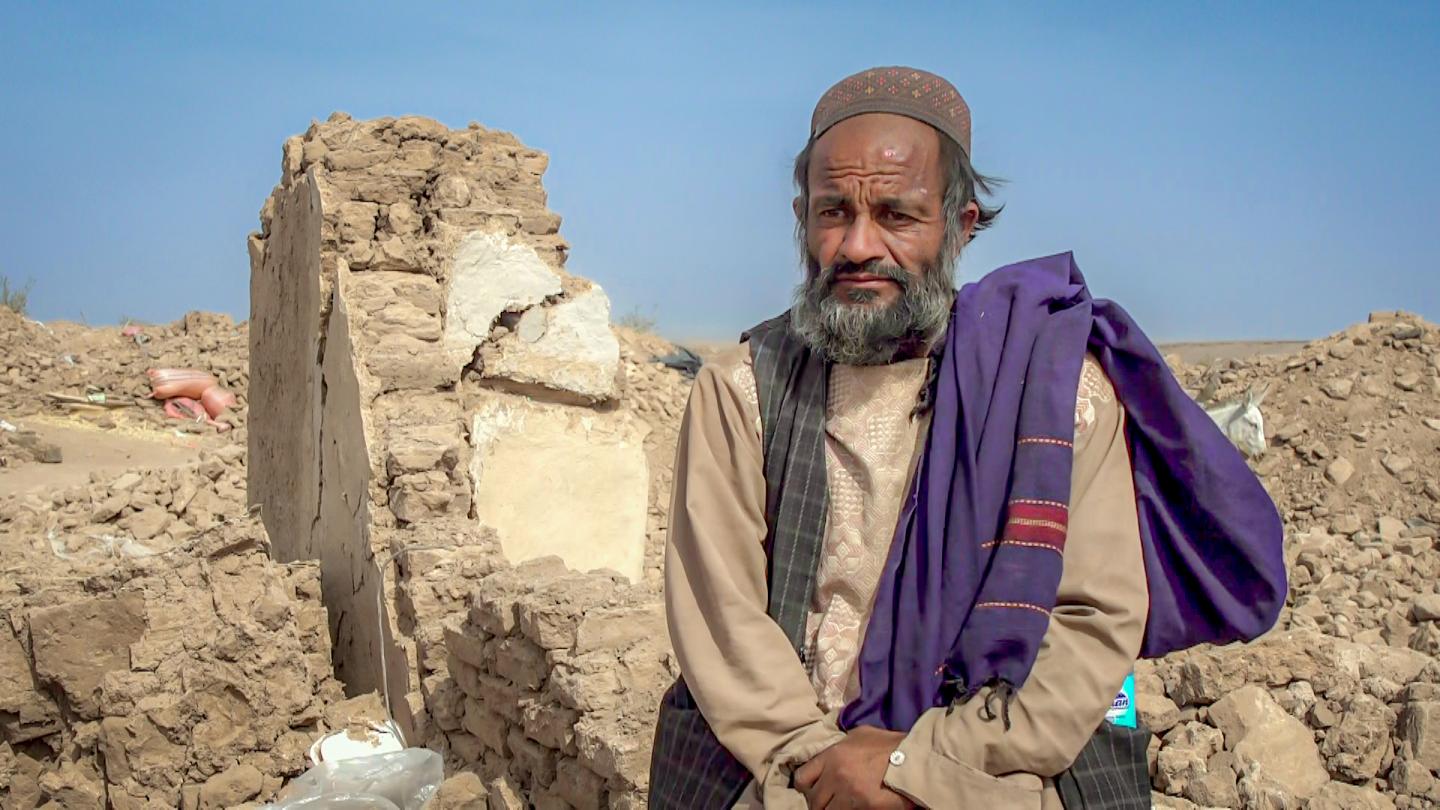
They had no shelter, no water, no food, no health care, no light. Dawood had lost everything.
As he looked around the devastated village, he felt the sorrow of his daughter's absence and wondered how they would survive the winter.
“If I had my daughter now, I would have my world with me.”His words paint a picture of a man broken but resilient, seeking not just aid but a place to call home.
The pain of not being able to save his daughter during the chaos, the inability to see her for the last time, adds layers of grief to an already heart-wrenching tale.
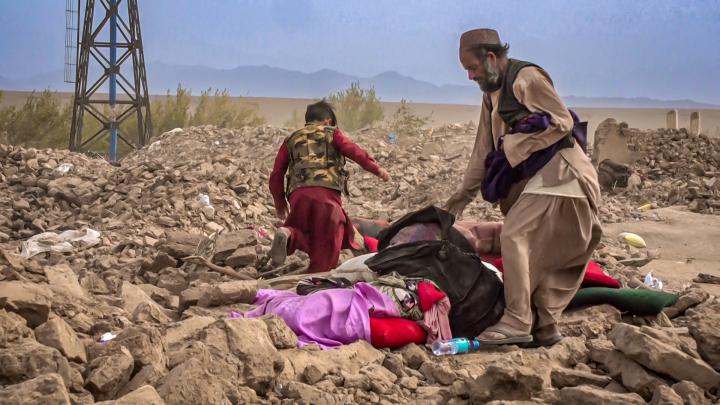
The nights are cold, and the days are harsh. The children are hungry and thirsty, and the adults are sick and tired. He feels scared and anxious saying “I had money, but I lost it. I lost my carpet, sheep, and all other savings under the rubble,” His plea is simple, “The winter is coming; we need a home to live in. We ask for a warm shelter that won't collapse. So, the wounded can heal and remain alive”
Dawood heard about UNDP's plan to support the earthquake-affected communities. He saw hope and thought that maybe, just maybe, he could recover from this disaster. He thought that maybe, just maybe, he could rebuild his life and his livelihood. He thought that maybe, just maybe, he could restore his dignity and his happiness.
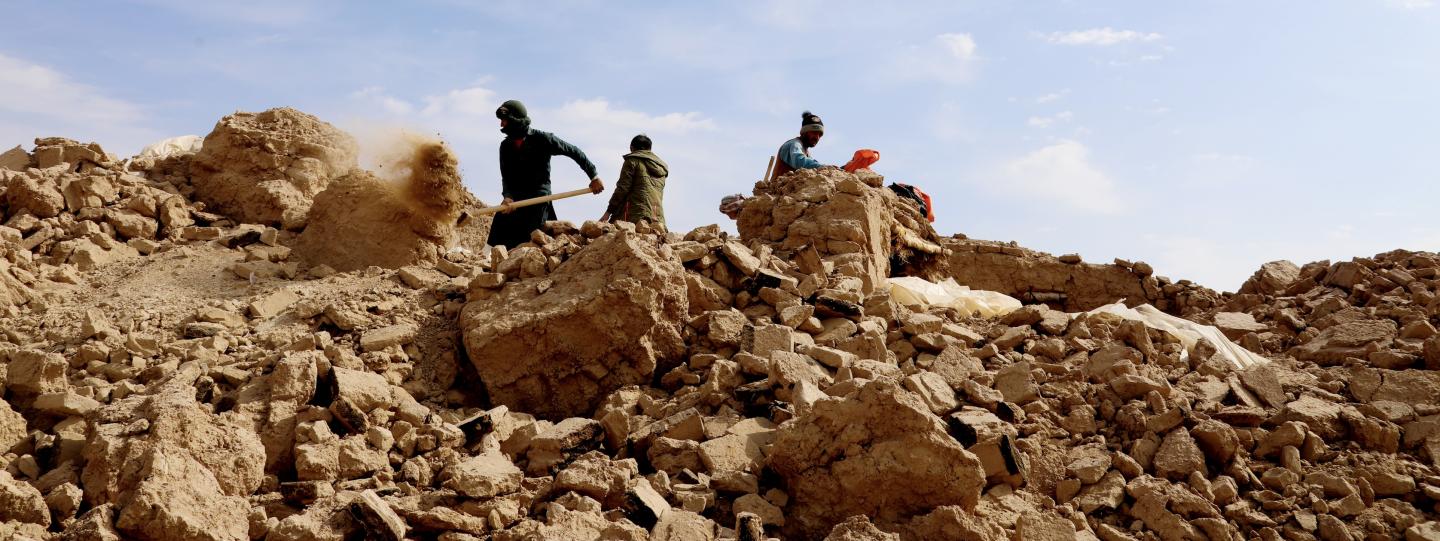
In response to the calls for help, UNDP Afghanistan along with other UN agencies and partners, have taken immediate action. Recognizing the immediate need for shelter and support, UNDP is working tirelessly to construct hundreds of transitional shelters designed to endure harsh winter and withstand future earthquakes, providing survivors like Dawood with a spacious, warm, and durable refuge.
Engaging in cash-for-work programmes, UNDP has enabled community members, to earn income through debris removal and land preparation for reconstruction. The initiative focuses on empowering women in the rebuilding process and imparting valuable knowledge on constructing resilient houses.
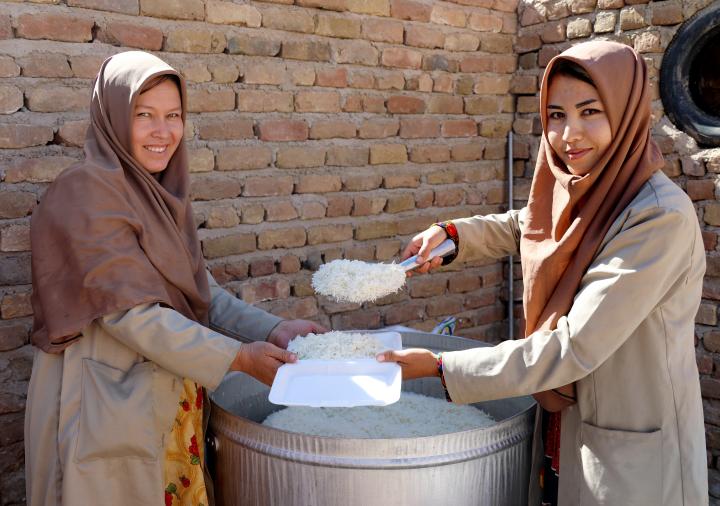
By supporting women-led community kitchens, UNDP ensures that thousands receive hot meals daily, offering comfort and relief to those coping with hunger and trauma in the aftermath of the earthquake. “I am just a simple woman, struggling to feed my children or find some bread for us at night. But then, a miracle happened. We received hot meals in our tent. For a moment, I forgot my troubles.” said Guldasta.
In the longer term, UNDP is actively involved in the reconstruction of essential infrastructure, including housing and retrofitting and solarizing households and public infrastructures such as schools and health centre’s, distributing solar cookers to the most affected households, while reviving and diversifying livelihood opportunities.
These activities will not only help the affected communities recover from the disaster, but also enhance their resilience and preparedness for future shocks. UNDP will work closely with UN agencies, the de facto and local authorities, and civil society to ensure that the recovery package is inclusive, participatory, and responsive to the needs and priorities of the people.
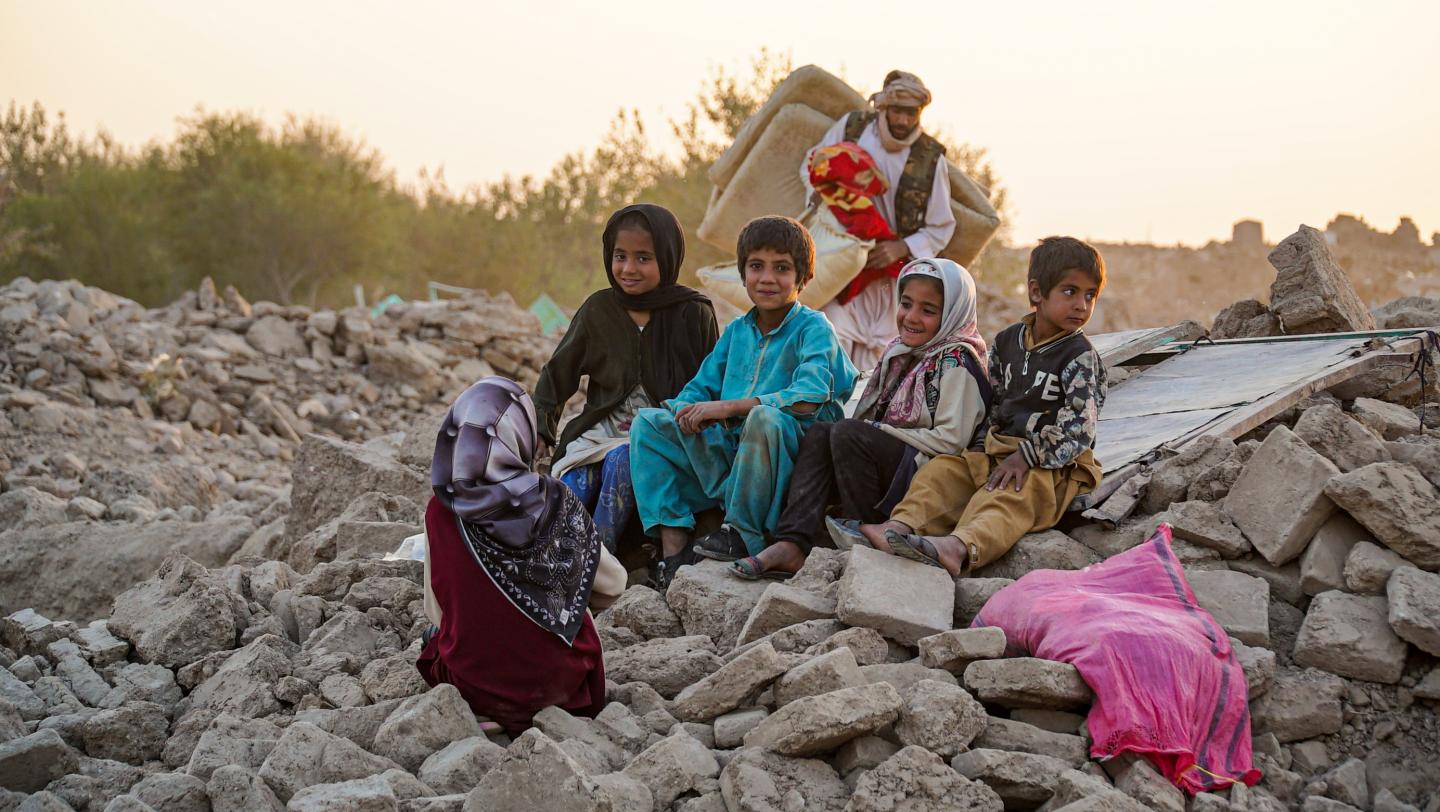
“We are appealing to the international community not to lose sight of Afghanistan and the needs of its people, and particularly the people in Herat who have suffered from this devastation." - Stephen Rodriques, UNDP Resident Representative in Afghanistan.
To support people like Dawood, UNDP appeals for more funding.

 Locations
Locations